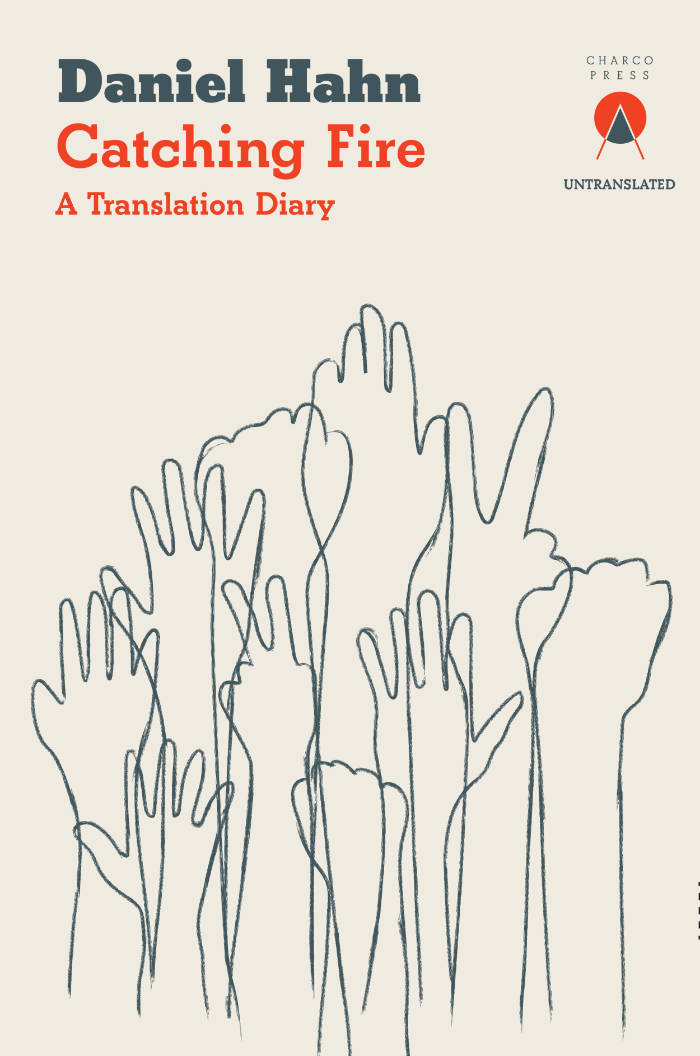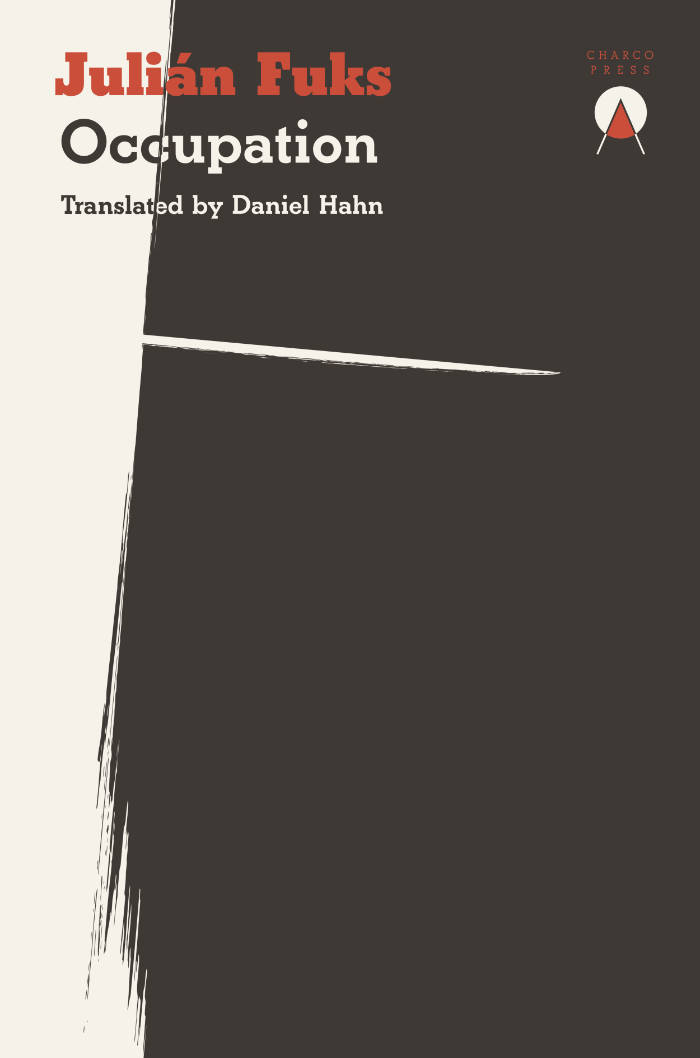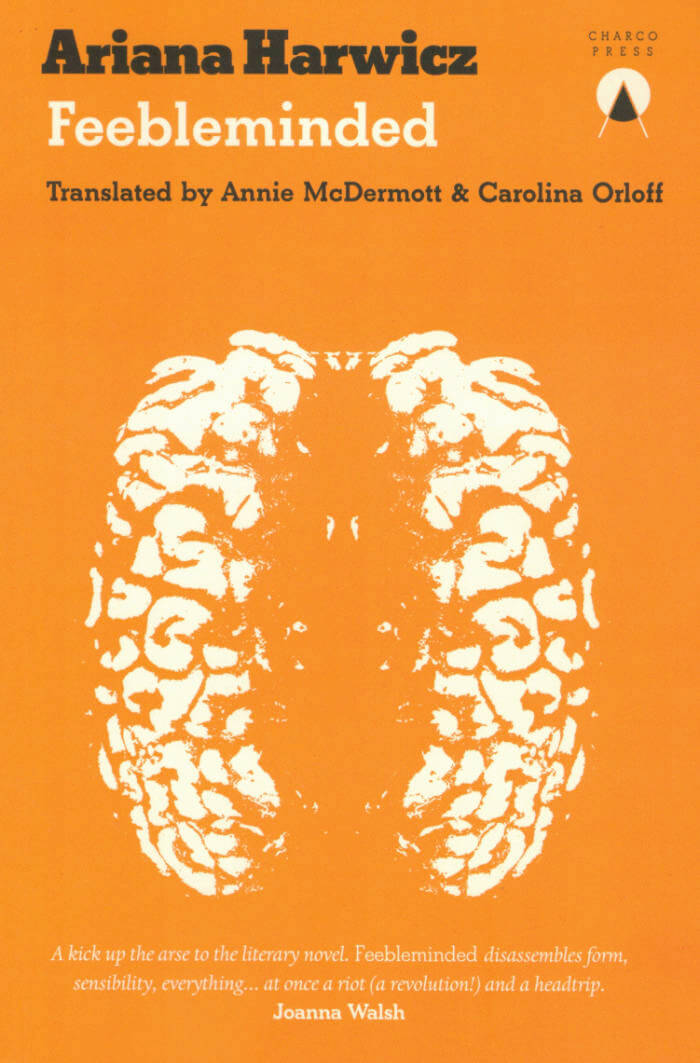Charco Press
Charco Press

Catching Fire
In Catching Fire, the translation of Diamela Eltit's Never Did the Fire unfolds in real time as a conversation between works of art, illuminating both in the process. The problems and pleasures of conveying literature into another language—what happens when you meet a pun? a double entendre?—are met by translator Daniel Hahn's humour, deftness, and deep appreciation for what sets Eltit's work apart, and his evolving understanding of what this particular novel is trying to do.

Occupation
Known and celebrated in Brazil and abroad for his novel Resistance, Julián Fuks returns to his auto-fictional alter ego Sebastián in a narrative alternating between the writer’s conversations with refugees occupying a building in downtown São Paulo, his father’s sickness, and his wife’s pregnancy. With impeccable prose, the author builds associations that go beyond the obvious, not only between glimpsing a life's beginning and end, but also between the building’s occupation and his wife's pregnancy — showcasing the various forms of occupation while exposing the frailty of life, the risk of solitude and the brutality of not belonging.

Die, My Love
In a forgotten patch of French countryside, a woman is battling her demons embracing exclusion yet wanting to belong, craving freedom whilst feeling trapped, yearning for family life but at the same time wanting to burn the entire house down. Given surprising leeway by her family for her increasingly erratic behaviour, she nevertheless feels ever more stifled and repressed. Motherhood, womanhood, the banality of love, the terrors of desire, the inexplicable brutality of another person carrying your heart forever Die, My Love faces all this with a raw intensity. It s not a question of if a breaking point will be reached, but rather when and how violent a form will it take?
A manic, bruising stream of conscious portrayal of a mother and wife struggling to maintain both a normal life and her sanity.
Compared to Nathalie Sarraute and Virginia Woolf, Ariana Harwicz is one of the most radical figures in contemporary Argentinian literature. Her prose is characterised by its violence, eroticism, irony and criticism of the clichés surrounding the notions of the family and conventional relationships. Born in Buenos Aires in 1977, Harwicz studied screenwriting and drama in Argentina, and earned a degree in Performing Arts from the University of Paris VII as well as a Master's in comparative literature from the Sorbonne. She has taught screenwriting and written plays, which have been staged in Buenos Aires. Feebleminded (which has also been adapted for the stage in Argentina and Spain) is her second novel and a sequel in an 'involuntary' trilogy, preceded by Die, My Love (Charco Press, 2017) and followed by Precocious. Her fourth novel, Degenerate comes out in June 2019. Die, My Love was longlisted for the Man Booker International Prize (2018) and shortlisted for the Republic of Consciousness Prize (2018). It has been translated into more than ten languages.

Feebleminded
The unraveling of a mother/daughter relationship that is at once chaotic, loving, and mercilessly destructive.
Following the international success of Die, My Love (longlisted for the Man Booker International Prize 2018), Ariana Harwicz again takes us into the darkest recesses of the imagination with this delirious, furious account of a mother and daughter bound by chaos as much as love. Driven to the edge by the men in their lives, they oscillate between erratic bursts of housework, lazing in the garden, and drunken escapades. But is the constant undercurrent of violence all in the daughter's mind or will they actually go through with their plan for revenge? With a shocking, edge-of-the-seat finale worthy of Thelma & Louise if it were remade by David Lynch, Feebleminded is a wild ride of a novel with echoes of Ágota Kristóf, Elfriede Jelinek and Alan Warner, and will leave you both shaken and begging for more.
Compared to Nathalie Sarraute and Virginia Woolf, Ariana Harwicz is one of the most radical figures in contemporary Argentinian literature. Her prose is characterised by its violence, eroticism, irony and criticism of the clichés surrounding the notions of the family and conventional relationships. Born in Buenos Aires in 1977, Harwicz studied screenwriting and drama in Argentina, and earned a degree in Performing Arts from the University of Paris VII as well as a Master's in comparative literature from the Sorbonne. She has taught screenwriting and written plays, which have been staged in Buenos Aires. Feebleminded (which has also been adapted for the stage in Argentina and Spain) is her second novel and a sequel in an 'involuntary' trilogy, preceded by Die, My Love (Charco Press, 2017) and followed by Precocious. Her fourth novel, Degenerate comes out in June 2019. Die, My Love was longlisted for the Man Booker International Prize (2018) and shortlisted for the Republic of Consciousness Prize (2018). It has been translated into more than ten languages.

Dead Girls
Not a police chronicle, not a thriller, but a contemporary noir novel of the ongoing catastrophe of femicide and the murder of three young women in interior of Argentina.
Femicide is generally defined as the murder of women simply because they are women. In 2018, 139 women died in the UK as a result of male violence (The Guardian). In Argentina this number is far higher, with 278 cases registered for that same year. Following the success of The Wind That Lays Waste, internationally acclaimed Argentinian author Selva Almada dives into the heart of this problem with this journalistic novel, comparable to Truman Capote’s In Cold Blood or John Hersey’s Hiroshima, in response to the urgent need for attention to a serious problem of our times.
Almada narrates the case of three small-town teenage girls murdered in the 1980’s; three unpunished deaths that occurred before the word ‘femicide’ was even coined. In this brutal but necessary novel, Almada brings to the fore these crimes committed in the interior of the country, while Argentina was celebrating the return of democracy. Three deaths without culprits: 19-year old Andrea Danne, stabbed in her own bed; 15-year old María Luisa Quevedo, raped, strangled, and dumped in wasteland; and 20-year old Sarita Mundín, whose disfigured body was found on a river bank. Selva Almada takes these and other tales of abused women to weave together a dry, straightforward portrait of gender violence that surpasses national borders and speaks to readers’ consciousness all over the world.
This is not a police chronicle, although there is an investigation. This is not a thriller, although there is mystery and suspense. The real noir element of Dead Girls lies in the heart of the women described here and of the men that have abused them. With her unique style of prose that captures the invisible, and with lyrical brutality, Almada manages to blaze new trails in this kind of journalistic fiction.
Compared to Carson McCullers, William Faulkner, Flannery O'Connor, Sara Gallardo and Juan Carlos Onetti, Selva Almada (Entre Ríos, Argentina, 1973) is considered one of the most powerful voices of contemporary Argentinian and Latin American literature and one of the most influential feminist intellectuals of the region. Including her debut _The Wind that Lays Waste, _she has published two novels, a book of short stories, a book of journalistic fiction and a kind of film diary (written in the set of Lucrecia Martel's most recent film Zama, based on Antonio di Benedetto's novel). She has been finalist of the Rodolfo Walsh Award and of the Tigre Juan Award (both in Spain). Her work has been translated into French, Italian, Portuguese, German, Dutch, Swedish and Turkish. This is her second book to appear in English after _The Wind that Lays Waste _(Winner of the EIBF First Book Award 2019).

Tender
The third and final installment of Ariana Harwicz's Involuntary Trilogy finds us on familiar, disquieting ground. Under the spell of a mother's madness, the French countryside transforms into a dreamscape of interconnected imagery: animals, desire, the functions of the body. Most troublingly: the comfort of a teenage son. Scorning the bourgeois mores and conventionality of their small town, she withdraws him from school and the two embark on ever more antisocial and dangerous behavior. Harwicz is at her best here, building an interior world so robust, and so grotesque, that it eclipses our shared reality. Savage, and savagely funny, she leaves us singed, if not scorched.
Compared to Nathalie Sarraute and Virginia Woolf, Ariana Harwicz is one of the most radical figures in contemporary Argentinian literature. Her prose is characterised by its violence, eroticism, irony and criticism of the clichés surrounding the notions of the family and conventional relationships. Born in Buenos Aires in 1977, Harwicz studied screenwriting and drama in Argentina, and earned a degree in Performing Arts from the University of Paris VII as well as a Master's in comparative literature from the Sorbonne. She has taught screenwriting and written plays, which have been staged in Buenos Aires. Feebleminded (which has also been adapted for the stage in Argentina and Spain) is her second novel and a sequel in an 'involuntary' trilogy, preceded by Die, My Love (Charco Press, 2017) and followed by Precocious. Her fourth novel, Degenerate comes out in June 2019. Die, My Love was longlisted for the Man Booker International Prize (2018) and shortlisted for the Republic of Consciousness Prize (2018). It has been translated into more than ten languages.
Translated by Carolina Orloff and Annie McDermott.